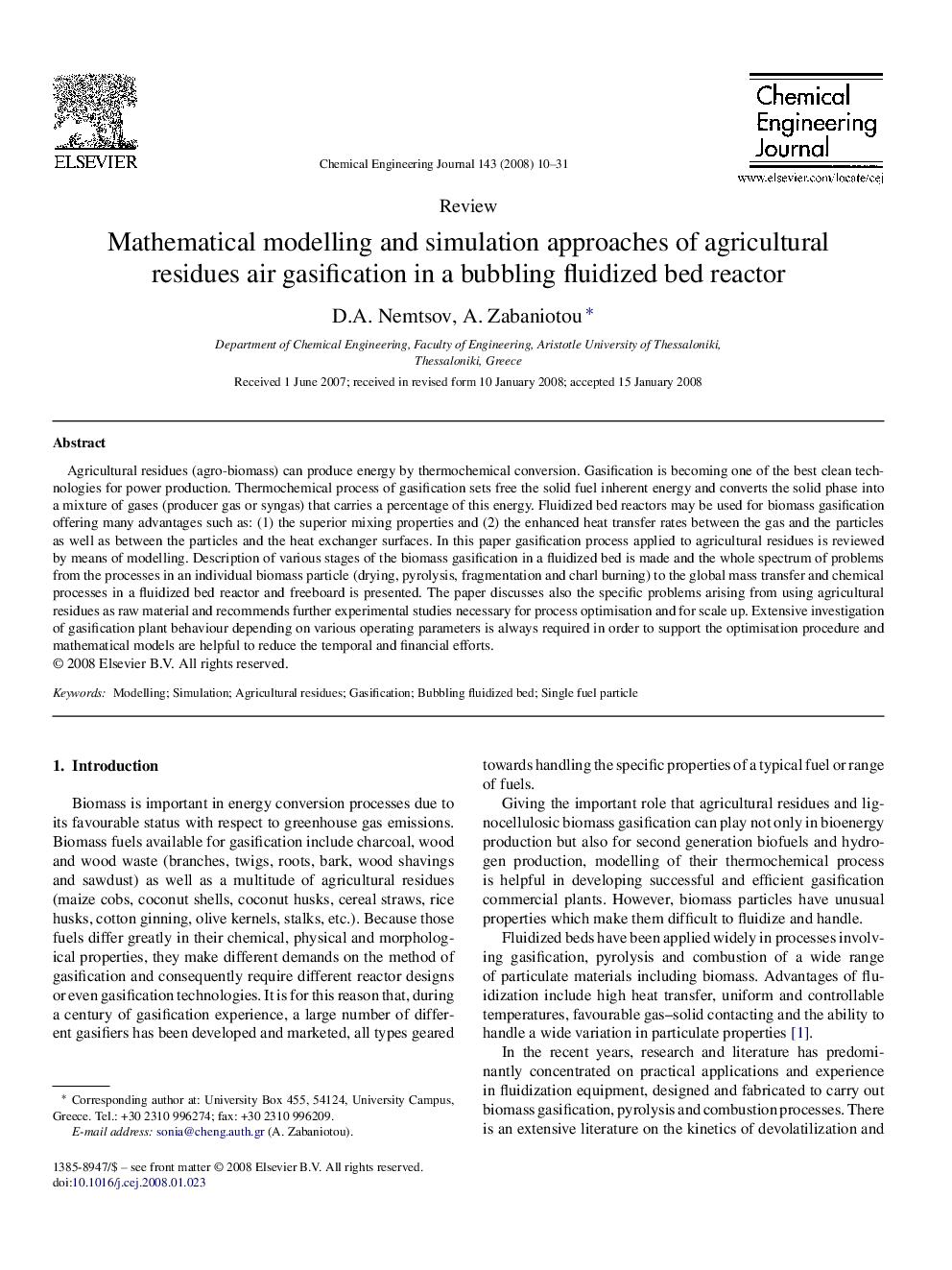| کد مقاله | کد نشریه | سال انتشار | مقاله انگلیسی | نسخه تمام متن |
|---|---|---|---|---|
| 152902 | 456512 | 2008 | 22 صفحه PDF | دانلود رایگان |

Agricultural residues (agro-biomass) can produce energy by thermochemical conversion. Gasification is becoming one of the best clean technologies for power production. Thermochemical process of gasification sets free the solid fuel inherent energy and converts the solid phase into a mixture of gases (producer gas or syngas) that carries a percentage of this energy. Fluidized bed reactors may be used for biomass gasification offering many advantages such as: (1) the superior mixing properties and (2) the enhanced heat transfer rates between the gas and the particles as well as between the particles and the heat exchanger surfaces. In this paper gasification process applied to agricultural residues is reviewed by means of modelling. Description of various stages of the biomass gasification in a fluidized bed is made and the whole spectrum of problems from the processes in an individual biomass particle (drying, pyrolysis, fragmentation and charl burning) to the global mass transfer and chemical processes in a fluidized bed reactor and freeboard is presented. The paper discusses also the specific problems arising from using agricultural residues as raw material and recommends further experimental studies necessary for process optimisation and for scale up. Extensive investigation of gasification plant behaviour depending on various operating parameters is always required in order to support the optimisation procedure and mathematical models are helpful to reduce the temporal and financial efforts.
Journal: Chemical Engineering Journal - Volume 143, Issues 1–3, 15 September 2008, Pages 10–31